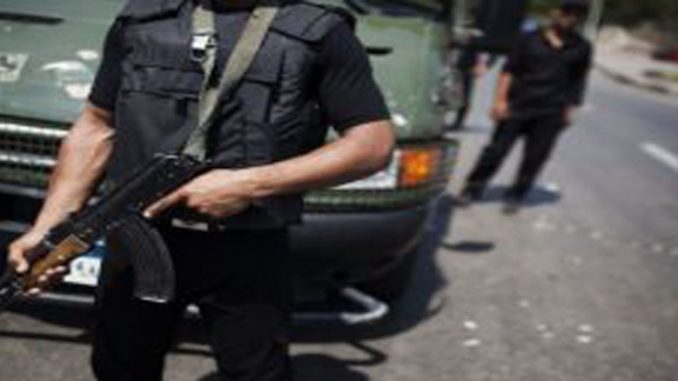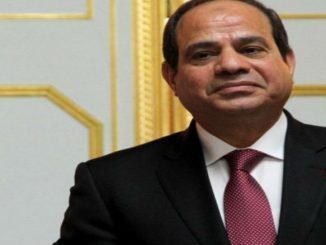
Egyptian authorities increasingly relied on counterterrorism and state of emergency laws to crush peaceful dissent during 2018, including by prosecuting journalists and human rights activists, Human Rights Watch said today in its World Report 2019.
Abdel Fattah al-Sisi won a second term in March elections held in a largely unfree and unfair environment. And parliament issued a new set of severely restrictive media laws to silence the little remaining domestic criticism of his autocratic rule, said the HRW.
“Using counterterrorism as a guise to crush all forms of dissent could be Egypt’s hallmark of 2018,” said Michael Page, deputy Middle East and North Africa director at Human Rights Watch. “There’s simply not much room left to peacefully challenge the government without being detained and unfairly prosecuted as a terrorist.”
In the 674-page World Report 2019, its 29th edition, Human Rights Watch reviewed human rights practices in more than 100 countries.
In his introductory essay, Executive Director Kenneth Roth says that the populists spreading hatred and intolerance in many countries are spawning a resistance.
New alliances of rights-respecting governments, often prompted and joined by civic groups and the public, are raising the cost of autocratic excess. Their successes illustrate the possibility of defending human rights – indeed, the responsibility to do so – even in darker times.
The Interior Ministry’s National Security Agency and the police carried out systematic and widespread enforced disappearances and torture of detainees.
The Stop Enforced Disappearance independent campaign has documented 230 cases of enforced disappearance between August 2017 and August 2018.
Authorities placed hundreds of people and entities on the country’s terrorism list and seized their assets for alleged terrorism links without any hearing or proper due process.
In late January and February, security forces carried out a series of arbitrary arrests in an escalating crackdown against al-Sisi’s peaceful political opponents ahead of the presidential vote.
The arrests included those who called for boycotting the process, such as the 2012 presidential candidate and the head of the Strong Egypt Party, Abd al-Moneim Abu al-Fotouh. He remains in pretrial detention despite a heart condition.
A wave of arrests in May included Hazem Abd al-Azim, a political activist; Wael Abbas, a prominent rights defender; Shady al-Ghazaly Harb, a surgeon; Amal Fathy, an activist; and Shady Abu Zaid, a satirist.
Another series of arrests in August included a former ambassador, Ma’soum Marzouk, who called for a public referendum on whether al-Sisi should resign.
In October and November, authorities rounded up at least 40 human rights activists and volunteers, several of whom were involved with the Egyptian Coordination for Rights and Freedoms, an independent organization. Authorities have disappeared the head of the group, Ezzat Ghoniem, since September.
Authorities also continued to prosecute scores of the country’s leading human rights activists and organizations in case 173 of 2011, known as the “foreign funding”case. The UN special rapporteur on the right to housing, who visited Egypt in September said that the government carried out home demolitions, arrests, to retaliate against citizens who cooperated with her team.
Egyptian courts sentenced scores of people to death in flawed mass trials during 2018 over alleged cases of political violence and terrorism links. Civilian and military appeals courts have upheld at least 51 of the death sentences. Additionally, authorities carried out at least 46 executions in different cases. The authorities prosecuted hundreds of civilians before both state security and military courts, neither of which meet minimum due process standards.
The restrictive Law 80 of 2016 on the construction of churches allowed, in 2018, for conditionally legalizing a small number of the churches that were operating without an official permit, but restrictions on church construction remain largely in place. The authorities forced 14 churches to close in 2018, the Egyptian Initiative for Personal Rights found.
Authorities held the first trade union elections in Egypt in 12 years in May, leaving the government-affiliated Egyptian Trade Union Federation (ETUF) effectively in control of the unions. Rights group said that the government excluded hundreds of candidates not aligned with the government.
According to the Human Rights Watch, “In North Sinai, where government forces have been fighting an Islamic State-affiliated group called Sinai Province (Wilayat Sinai), the army committed flagrant abuses that amount in certain cases to collective punishment.”Beginning in January, the army began the most intensive wave of home demolitions in Sinai in years, demolishing at least 3,600 homes and other buildings.
HRW blamed al-Sisi’s west allies saying,”Egypt’s international allies continue to focus on cooperation on the issues of terrorism and migration, while rarely offer public criticism.” United States President Donald Trump, during al-Sisi’s September visit to New York, said that al-Sisi has done “an outstanding job” in fighting terrorism.



